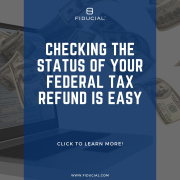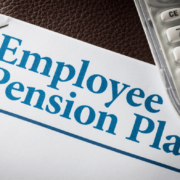Important Info for S-Corporation Shareholders & Partners of a Partnership
- Find the schedule K-2 and K-3 filing requirements.
- Learn the background of the Schedules K-2 and K-3.
- Learn about the 2 exceptions for filing the Schedules K-2 and K-3.
- Find out how partners and/or shareholder notification plays a part in the domestic filing exception.
- Learn about Form 1116 – Foreign Tax Credit Filing Exception and Form 1116 Exception Entity Notification.
There is an important issue related to filing the 2022 S-corporation (Form 1120-S) and partnership (Form 1065) tax returns that requires the cooperation of the shareholders and partners.

Background on Schedules K-2 and K-3 for S-Corporations and Partnerships
The IRS, for the 2021 tax year, without sufficient warning, introduced two new schedules for S-corporations and partnerships, the Schedules K-2 and K-3. These two schedules are supplemental schedules to the Schedule K-1 that provide shareholders and partners with information needed to prepare their individual tax returns (Form 1040). The problem is these two new schedules were designed to report all forms of foreign transactions, not just the ones that applied to the particular entity and were dealt with on supplemental schedules in the past. In fact, these two new schedules are both about 20 pages in length. This substantially increases the return preparation time and preparation costs. As you might imagine, this change created quite an uproar in the tax preparation community last filing season. As a result, the IRS provided some filing relief for certain 2021 returns.
Fast Forward to the Present
The IRS draft instructions for filing the 2022 S-corporation and partnership returns include two exceptions for filing the K-2 and K-3 Schedules for domestic S-corporations and partnerships. Unfortunately, this has become the norm for the IRS, and the qualifications to use these exceptions are complicated.
Domestic Entity Exception
How do you use the domestic entity exception to avoid filing the Schedules K-2 and K-3? The entity can only have minimal foreign activity which is limited to passive income upon which no more than $300 of foreign tax was paid or accrued and reported on a U.S. information return. Also, all direct partners and shareholders must be U.S. citizens, resident aliens, or certain domestic estates and trusts.
This Is Where S-Corporation Shareholders/Partners May Play a Role
Among other requirements, to qualify for the domestic filing exception, each partner/shareholder must receive a notification from the entity along with the K-1 notifying the partner/shareholder that they will not receive a Schedule K-3 unless it is specifically requested. Generally, unless involved in foreign transactions, the K-3 is not required. If no partners/shareholders request a K-3, the partnership/S corporation is not required to complete and file.
Form 1116 Exception for Domestic Partnerships and S-Corporations
The IRS also provides an additional exception to filing Schedules K-2 and K-3 for domestic partnerships and S-corporations if all partners/shareholders qualify for the Form 1116 foreign tax credit filing exemption. The exemption from filing Form 1116 to claim foreign tax credit applies to individuals who have less than $300 ($600 for married couples filing jointly) in creditable foreign taxes paid on qualified passive foreign income. In other words, the partner or shareholder can claim a foreign tax credit without filing Form 1116. This exemption applies only if the foreign income is reported on a U.S. information return, such as a 1099-DIV, 1099-INT, 1099-B, or a K-1. The downside to claiming the credit without using Form 1116 is a taxpayer cannot make the election to claim any foreign tax credit carryovers.
For the Form 1116 exception to apply to the partnership or S-corporation, the entity must receive notification from all partners or shareholders no later than one month before the entity’s unextended filing deadline. The deadline is August 15, 2023, for calendar-year partnerships and S-corporations plus valid extensions. So, don’t be surprised if the notification required for domestic entity exception also includes a request for the Form 1116 exception information.
Where the partnership or S-corporation is only advised by some of the shareholders or partners that they qualify for the Form 1116 exemption, then the entity need only complete the Schedules K-2 and K-3 for the other partners or shareholders to the extent that the entity does not qualify for the domestic filing exception.
Have Questions?
Have questions about the Schedules K-2 and K-3? Need clarification on the exceptions? Call Fiducial at 1-866-FIDUCIAL or make an appointment at one of our office locations to discuss your situation.
Ready to book an appointment now? Click here. Know someone who might need our services? We love referrals!









